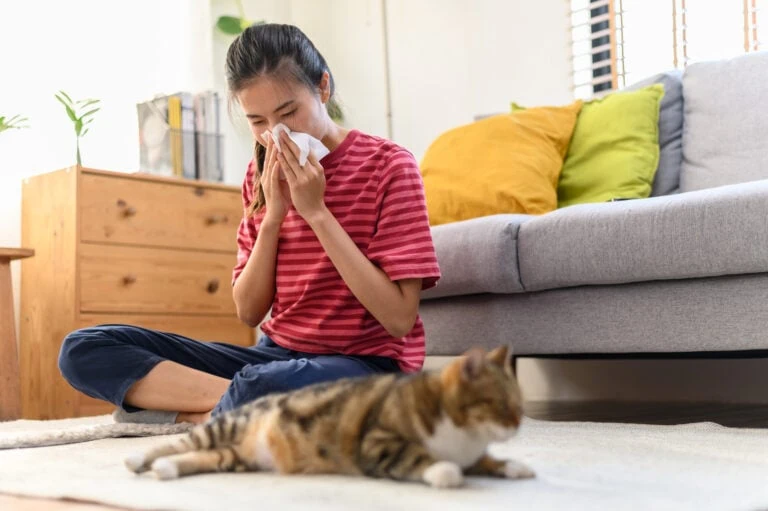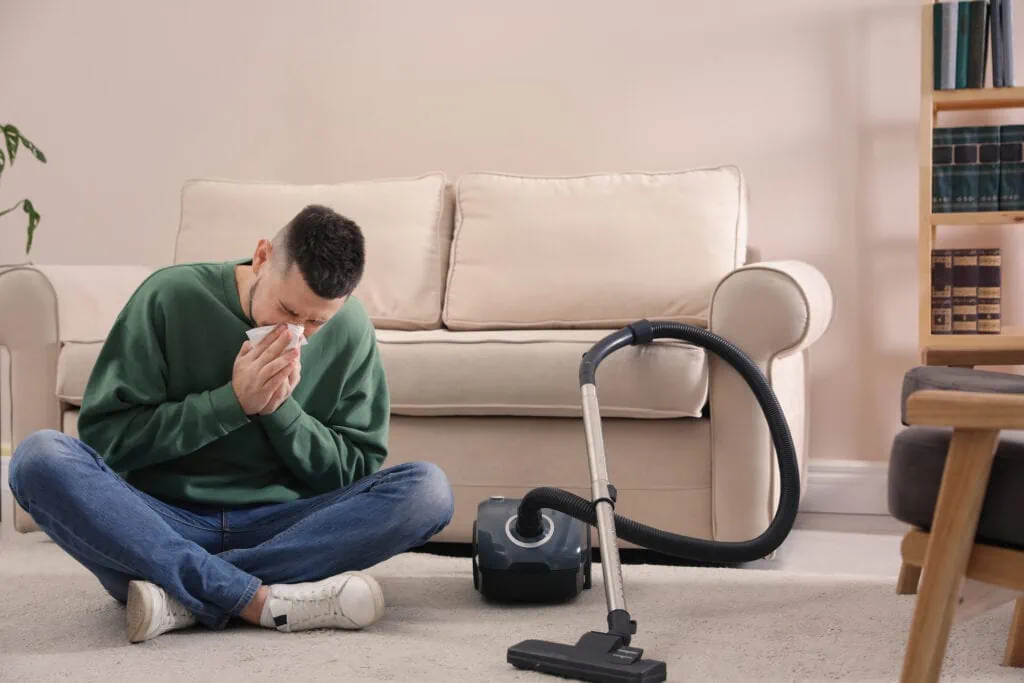Indoor allergens can be a significant concern for many people at home. They can cause discomfort and other health problems, especially those with allergies or asthma.
Indoor allergens can trigger the following reactions:
- Coughing
- Itchy eyes
- Runny nose
- Sneezing
Luckily, there are many things you can do to minimize indoor allergens and improve the air quality in your home. Read on to learn more.
- Declutter Your Home
One of the best ways to reduce indoor allergens in your home is to keep it clean and dust-free. Dust mites can be a significant source of allergens. They’re microscopic creatures that live in the dust and survive in a warm, humid environment.
To eliminate dust mites, cleaning your home is best. It also helps to vacuum carpets and rugs regularly and wipe surfaces with a damp cloth. In addition, you can declutter your home to get rid of unwanted objects and make more space.
Excessive clutter provides a place for dust and allergens to stay and thrive. You may throw unnecessary items in the bin or keep them organized in a storage area.
- Ensure The Air Filters Are Clean And In Good Shape
Another way to minimize the indoor allergens in your home is to check your air conditioning system’s air filters and ensure they’re working efficiently. Dust, pollen, and other particles can clog your air filters, reducing the equipment’s capacity to catch allergens and maintain good indoor air quality.
Cleaning your air filters can remove dirt and clogs. In most cases, it’s essential to change them at least every three months or more often if you have allergies or have pets at home. If you’re looking for a replacement, a high-efficiency particulate air (HEPA) filter is an excellent option. Replacing the filters can help improve the air quality, keeping indoor allergens at bay.
Aside from changing air filters, you can also enhance your home’s air quality using the right air conditioning system. For instance, investing in a ducted air conditioning system can help maintain better indoor air quality. To learn more, check out reliable websites and resources to get information on how to select a ducted air system.
- Ventilate Your Home
Proper ventilation is crucial in minimizing allergens and creating a healthier environment. When you think about allergens, you often focus on keeping them out. But what about those pesky particles that have already made their way inside? That’s where ventilation steps in to save the day.
Here are some tips to help you:
- Open the windows or use ceiling fans to allow fresh air to circulate.
- Use exhaust fans to reduce the moisture and pollutants in your living space.
- Utilize air purifiers to reduce the concentration of allergens like pollen and dust mites.
Did you know high humidity levels can attract allergens? Having adequate ventilation can help in minimizing them. Furthermore, good ventilation is crucial for controlling humidity and keeping allergens away.
- Use Allergy-Friendly Bedding
Bedding can be a significant source of indoor allergens, especially if you have pets. In addition, dust mites tend to thrive in warm environments like bedding.
You can follow these tips:
- Use allergy-friendly covers for your mattress and pillows to reduce allergens in your bedding. These covers are made from a tightly woven fabric, prohibiting dust mites from entering.
- Choose hypoallergenic materials for your bedding. Some options include bamboo and cotton. These materials are less likely to cause allergies than synthetic materials like polyester.
- Wash your bedding in hot water once a week to kill dust mites.
Meanwhile, replacing your old bedding is advisable.
- Use Natural Cleaning Products
Several cleaning products contain harsh chemicals and fragrances that can release fumes and cause allergies. You can use natural cleaning products to reduce the risk of indoor allergens in your home. Search for eco-friendly or organic products since they’re safer.
On the other hand, you can create your cleaning solution using lemon juice, baking soda, and vinegar. These kitchen essentials can be effective in cleaning surfaces without causing allergy symptoms.
- Keep Pets Out of Bedrooms
Pets can be a primary source of indoor allergens, especially when they shed. Hence, keeping pets out of bedrooms and other living areas can help reduce indoor allergens. You can train them to stay out of specific spaces. It helps to use some reinforcement techniques like treats to encourage good behavior.
Alternatively, you can install pet gates to block off areas of your home. Meanwhile, ensure to bathe your pets regularly to keep them clean and healthy.
Final Thoughts
Reducing indoor allergens can be a challenge. However, it’s a crucial step in improving the air quality in your home, avoiding allergy symptoms that can affect overall health. Following the tips mentioned above can help you create a cleaner, healthier living environment for you and your family.




